A THIRD-GENERATION VERMONT TREE FARMER CELEBRATES THE HOLIDAYS WITH A HARVEST.

My family Christmas memories include my grandmother running a cash box, my parents making wreaths and garlands, and my siblings and me leading customers into fields to help them find the perfect tree.
Werner Tree Farm sits on the edge of Middlebury, Vermont, and has about 20,000 trees of a dozen or so species spread out over 36 acres. The farm got its start when my grandfather Fred Werner gave my parents 13 tiny Scotch pines left over from a tree planting project of his own. Over the years, the business has branched out to include mail-order fresh wreaths, maple syrup, honey and custom greenery. From those original 13 trees, our family operation has grown into one of the most popular cut-your-own tree farms in the state.
Farming is hard work, but we love growing and selling trees as a family. Each spring and early summer, we plant saplings to replace those that were cut in the winter. In summer and fall, we trim and shape each tree with our shearing knives. In November, we convert my father’s wood shop into a Christmas store. From the week before Thanksgiving until Christmas Day, our lives revolve around preparing and selling evergreens.
This story is from the {{IssueName}} edition of {{MagazineName}}.
Start your 7-day Magzter GOLD free trial to access thousands of curated premium stories, and 9,000+ magazines and newspapers.
Already a subscriber ? Sign In
This story is from the {{IssueName}} edition of {{MagazineName}}.
Start your 7-day Magzter GOLD free trial to access thousands of curated premium stories, and 9,000+ magazines and newspapers.
Already a subscriber? Sign In
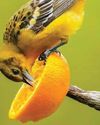
Sense or Nonsense? - Why some birds can taste and smell - but others can't
Does a porcelain berry taste like a blueberry to a gray catbird? Does a block of lard smell like frying bacon to a northern flicker? The short answer is no. While some avian species do have a well-adapted sense of taste or smell, they can't distinguish between flavors and odors the way humans can. They're not picking up every ingredient in the suet you put out, says José Ramírez-Garofalo, an ornithology researcher at Rutgers University in New Jersey and the director of Freshkills Biological Station in Staten Island, New York.

Maple Mania - Amazing facts about this fall foliage mainstay
Amazing facts about this fall foliage mainstay
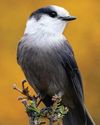
Food-Focused and Fierce - Meet Canada jays and learn why they eat almost anything they can find
Even if you haven't heard of Canada jays, you've heard of their relatives. Members of the corvid family, they belong to the same group as American crows, blackbilled magpies, and jays including blue, Steller's and scrub. "Unlike many of the other jays, a Canada jay doesn't have a crest of any kind; it just has a rounded head," says Dale Gentry, director of conservation for Audubon Upper Mississippi River.In 2018, the Canada jay's name was changed from gray jay, but Dale thinks the former adjective was fitting. "Most of its body is shades of gray with some white," he says. "There are different subspecies that have different physical traits, but most of them have some lighter coloring on their foreheads, upper breasts and throats, each with a darker streak that starts at each eye and goes back."
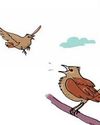
IN GOOD COMPANY
BIRDS OF A FEATHER MAY FLOCK TOGETHER, but what about other collectives of critters-and what do you call them when they do?
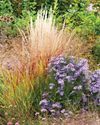
YOUR OWN Perfect Prairie
Learn how to cultivate an oasis of grassland flora in your backyard

ON THE MOVE
Birds approach the challenges of migration in surprising ways. Learn about how they walk, swim or take the scenic route during their travels.
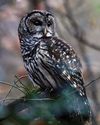
Autumn Wonders
Fall colors offer befitting backdrops for these stunning reader photos
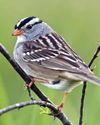
Sparrow Look-Alikes
Distinct sounds help separate these similar species
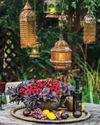
Embracing the Darkness
From black plants to moody decor, Gothic garden elements can offer a unique outlet to express your dark side
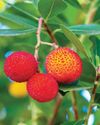
Red-Hot Plants
Scarlet-hued berries add a pop of color to any garden